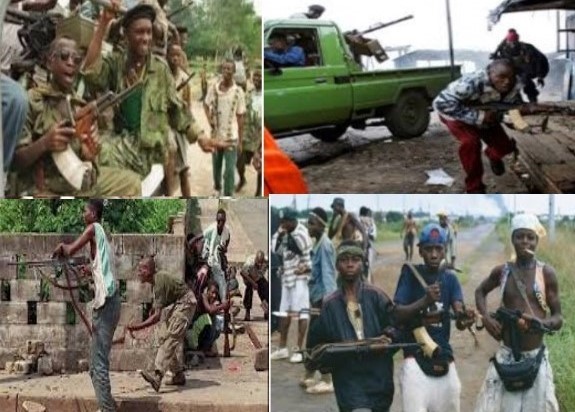By William Selmah wselmah@gmail.com
The newly established Secretariat for the Establishment of War Crimes Court in Liberia (SEWACCOL), has warned that Liberia risks being punished by the United Nations and the rest of the international community if it refuses to set up a war crimes court to prosecute atrocities committed during its civil war (1989 – 2003).
One of the co-founders of the group, Adama Dempster told News Public Trust in an exclusive interview that reneging on setting up the court could lead to far-reaching consequences, including travel bans on some key state actors, loss of seat at the UN Human Rights Committee and denial of financial assistance from development agencies such as the International Monetary Fund and the World Bank.
The Liberian Civil War was one of the 20th century’s most bloody civil wars, with an estimated 250,000 people killed. The Truth and Reconciliation Commission (TRC) recommended in 2009 in its report that people who bear the greatest responsibilities of the human rights violations during the crisis face a court but that is yet to happen a decade on.
The United Nations last year gave Liberia up to July 2020 to address its wartime atrocities, but President George Weah has not shown political will for the court. He enjoys a power bloc with Senator Prince Johnson of Nimba County, one of the civil war’s “most notorious perpetrators”, according to the TRC, and has appointed other ex-warlords in his government.
President Weah has sent mixed signals regarding where he stands on the issue of war crimes. In one of his public comments on the matter in November 2018, he asked Liberians to choose between war crimes court and peace and development. In subsequent time, he wrote Legislature seeking the august body’s advice on the establishment of a war crimes court. The President also invited the President of the ICC President Chile Eboe-Osuji in order to discuss the idea of setting up a war and economic crimes court for Liberia.
The Liberian economy is at its lowest ebb ever, with inflation at an all-time, job-cuts within major employers such as Firestone and Accelor Mittal, foreign exchange rate currently at more than 195 Liberian dollars to a United States dollar.
Dempster said Liberia had no option and could not afford anything worse than its current economic status. “A country that has signed international human rights statutes is under obligation to abide by them,” Dempster said.
He reported on Liberia in Geneva 2018, where the UN urged the country to address its wartime human rights abuse. “You want the IMF, the World Bank and other people to give you money. Those international
[grants and loans]
are basically tied around your good international records. If you cannot implement our responsibilities on those human rights statutes, of course, you stand the risk of being denied a lot of good [things] that can help you carry out your developmental program,” he said.
“There are more [consequences], so it is important that the government acts to put Liberia in a better position than where we find ourselves,”Dempster added.
Those against the court have argued that it would be too expensive for Liberia to underwrite.
But Hassan Bility, another member of SEWACCOL, said funding would come from the UN and other friendly nations once the first step is taken by the government to set it up the court. He referenced a recent resolution passed by the House of Representatives of the United States Congress to support wartime accountability in Liberia as a show of support.
“The fact that it is the Congress that appropriates money, we just need to take the first step—pass it into law—and make the request to the United Nations and we will get the money,” said Bility whose Global Justice and Research Project aids the prosecution of Liberians in America and Europe. He said that was the case of the other criminal tribunals around the world such as the one for the former Yugoslavia.
Aaron Weah, another member of SEWACCOL, urged the government to include wartime accountability in the Pro-Poor Agenda for Prosperity and Development in order to attract multilateral and bilateral support.
“Nations today who are developed because of accountability are going to give a hand to provide the resources for a special court,”Weah said, citing Sierra Leone, where the UN and 40 countries, including Nigeria donated money to its war crimes court which convicted and imprisoned former President Charles Taylor for 50 years in Great Britain. Taylor is being punished for his role in Sierra Leone’s civil war.

